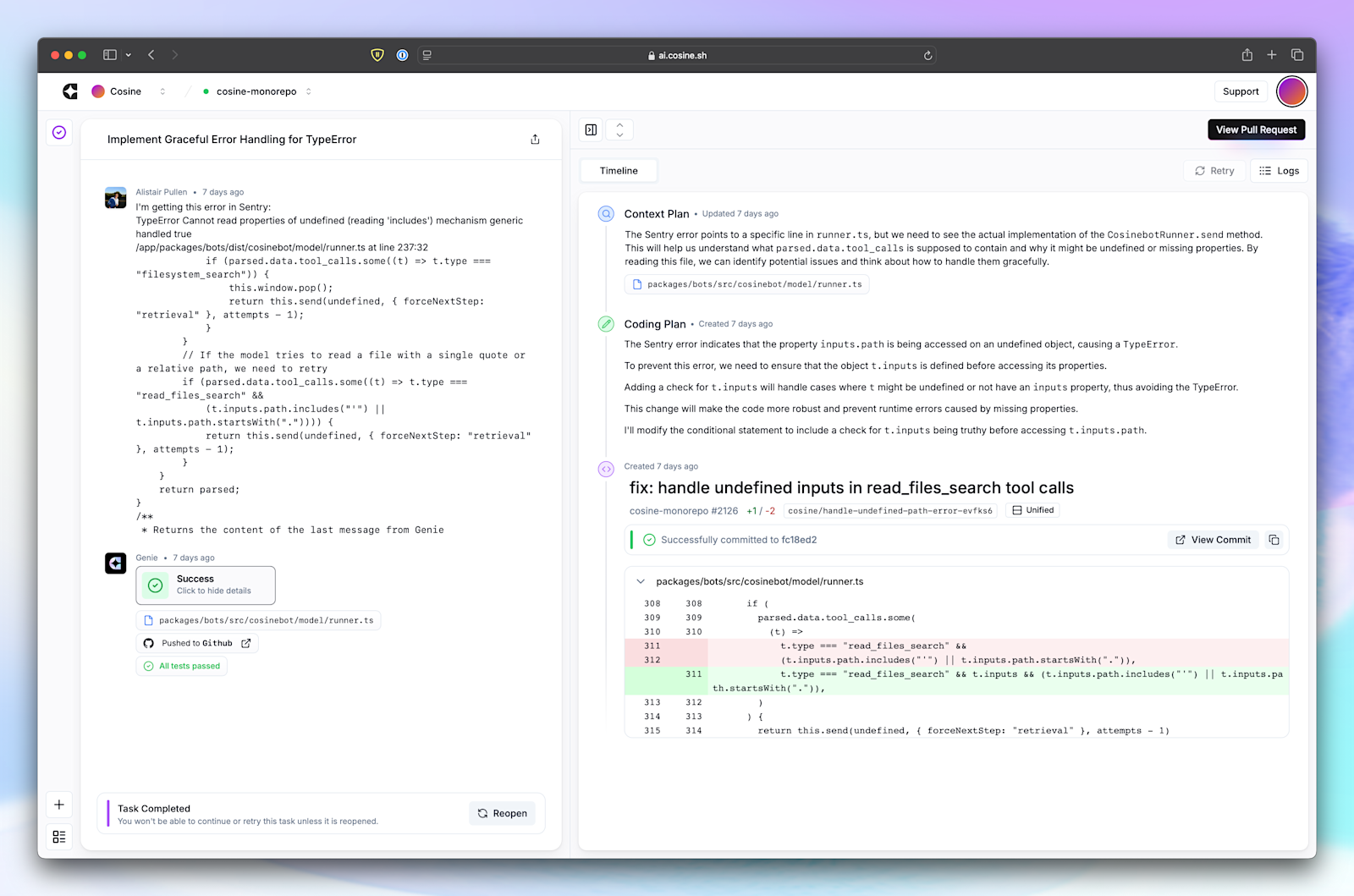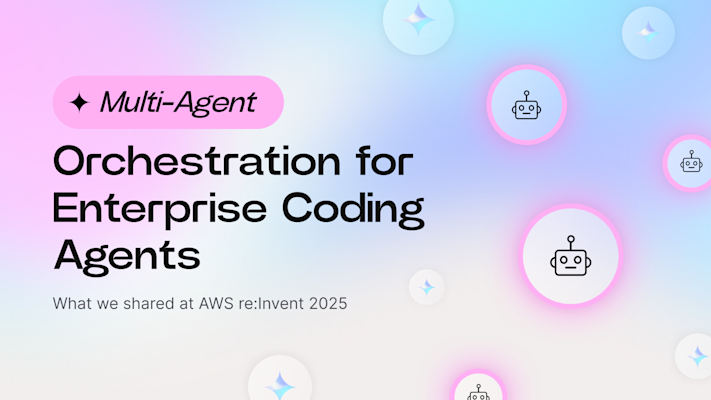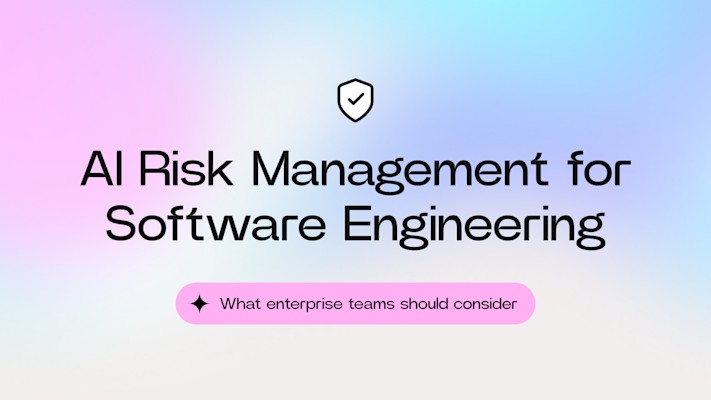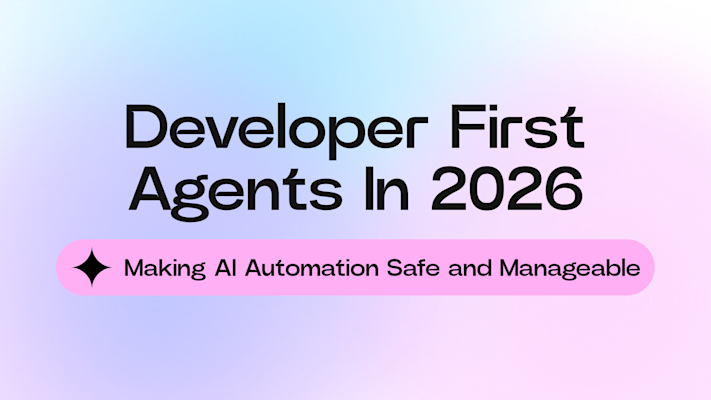Is artificial intelligence in software engineering merely mimicking human developers and catching up, or is there something more—a “ghost in the machine” that's beginning to chart its own path?
Learning Beyond Human Expertise
Consider the evolution of chess-playing AI. Early programs replicated human strategies, relying on algorithms crafted by experts. They played well but remained confined within the boundaries of human thought.
Then came AI like AlphaZero, which learned chess by playing millions of games against itself. Without human input on strategies, it developed unconventional moves that even grandmasters hadn't considered, surpassing human expertise through self-learning.
Genie: Beyond Imitation in Software Engineering
A similar shift is occurring in software engineering with models like Genie. Genie isn't just another AI assistant or code autocomplete tool. It is an AI software engineering model—the world's best AI software engineer.
Trained on extensive reasoning data—including both successful and flawed problem-solving steps—Genie doesn't merely imitate developers. It can solve bugs, build features, refactor code, and tackle challenges autonomously or collaboratively, much like working with a colleague, not just a copilot.
When presented with a problem, Genie devises solutions that may differ from conventional approaches, potentially uncovering optimizations and novel methods that might elude human engineers.

The Importance of Quality Data
Research underscores the significance of data quality in AI performance. NVIDIA, for instance, has demonstrated that diverse, high-quality datasets enhance AI capabilities across tasks. Similarly, insights from studies suggest that current AI models often rely on pattern recognition rather than true understanding, struggling with complex reasoning when training data lacks depth and diversity—a point highlighted in recent research from Apple.
Apple's findings indicate that AI models don't always reason from first principles but instead often resort to memorization. By fine-tuning Genie on rich reasoning data—including incorrect attempts—we aim to move beyond these limitations.
Compared to baseline models not fine-tuned on such data, Genie shows a superior ability to tackle complex software engineering problems, enhancing accuracy and performance.
Tools That Elevate Human Capability
The advent of AI like Genie in software engineering is akin to the introduction of calculators in mathematics. Calculators didn't replace mathematicians; they handled tedious computations, allowing humans to focus on deeper problem-solving.
Similarly, Genie doesn't replace software engineers. It handles routine or intricate coding tasks, freeing engineers to concentrate on higher-level design and innovation. This collaboration enhances productivity and opens doors to creative solutions.
Embracing the Ghost in the Machine
Referring to Genie as a "ghost in the machine" is a metaphor for the unseen ways AI transcends conventional programming paradigms. As AI continues to evolve, we may witness solutions that challenge traditional logic, prompting us to rethink established norms.
Embracing this subtle presence could lead to breakthroughs that redefine what's possible in software development. The future isn't about machines overtaking humans but about how we harness these advanced tools to push the boundaries of innovation.


 @notgiorgos
@notgiorgos 

